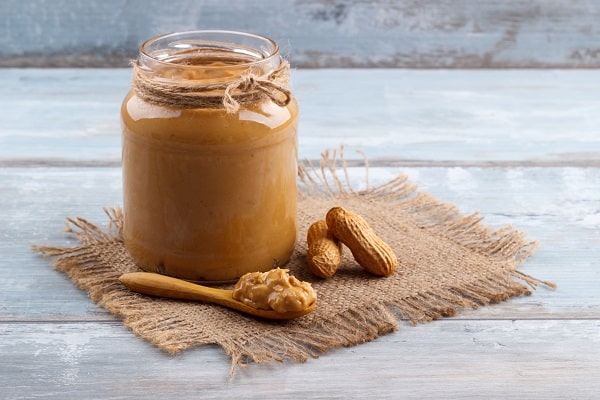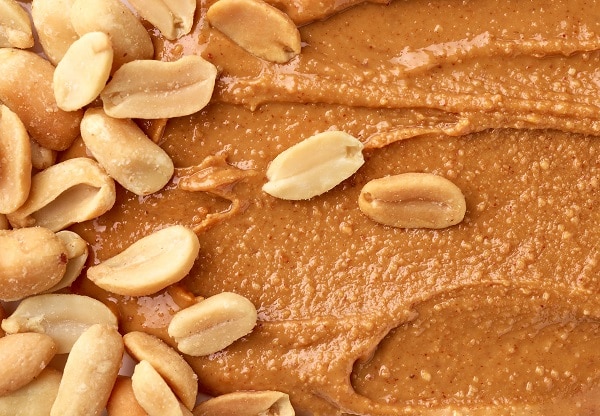Peanut butter, an internationally beloved spread, has etched its place firmly in food culture around the globe. The perfect blend of sweet and salty, peanut butter is not only cherished for its unique taste but also for its nutritious value. However, like any food, peanut butter too has a spectrum of pros and cons when incorporated into your daily diet. This blog aims to explore these advantages and disadvantages in depth, giving you a comprehensive understanding of peanut butter’s role in your diet.
Contents
- 1 A Brief History Of Peanut Butter
- 2 Nutritional Composition Of Peanut Butter
- 3 The Role Of Peanut Butter In Various Diets
- 4 The Pros Of Peanut Butter In Diets
- 5 The Cons Of Peanut Butter In Diets
- 6 Peanut Butter In Weight Management
- 7 Making An Informed Choice: Moderation Is Key
- 8 Common Misconceptions About Peanut Butter
- 9 Know The Truth About Adding Peanut Butter In Diets!
A Brief History Of Peanut Butter

The roots of peanut butter trace back to the Ancient Incas and Aztecs, who first transformed peanuts into a paste. Fast forward to the late 19th century, when peanut butter started gaining popularity in the United States as a nutritious and protein-rich food. Over the years, it has established itself as a staple in households worldwide.
The rise in popularity can be attributed not only to its delicious taste but also to its versatile use in various dishes. From a classic PB&J sandwich to a range of savory dishes, peanut butter has made its mark as an all-rounder.
Nutritional Composition Of Peanut Butter

Peanut butter is full of essential nutrients. A serving (2 tablespoons) typically contains around 190 calories, comprising 7 grams of protein, 16 grams of fat, and 8 grams of carbohydrates. Along with these macronutrients, peanut butter is also a rich source of micronutrients like potassium, magnesium, and antioxidants.
However, it’s important to keep in mind that peanut butter is high in calories. Despite offering numerous nutritional benefits, overconsumption could lead to weight gain. As with all foods, the key to gaining the benefits lies in moderation and balance.
The Role Of Peanut Butter In Various Diets

Peanut butter’s nutrient composition makes it a suitable option for various diets. In a ketogenic or low-carb diet, its high protein and fat content can provide the necessary energy. For vegans, it serves as a significant source of plant-based protein. In weight-gain diets, the high-calorie content proves beneficial.
Yet, despite its suitability in these diets, it’s crucial to remember that a diverse diet is essential for overall health. Peanut butter can be a beneficial addition, but you should incorporate it amongst a range of other nutritious foods.
The Pros Of Peanut Butter In Diets

Peanut butter is hailed for being a powerhouse of protein and healthy fats. These nutrients are crucial for the body’s growth, repair, and overall health. Moreover, the monounsaturated fats found in peanuts contribute to heart health by managing cholesterol levels.
Along with these macronutrients, peanut butter is also densely packed with vitamins and minerals. Micronutrients like magnesium, phosphorus, zinc, and niacin are all found in generous amounts. These vitamins and minerals play a pivotal role in maintaining body functions and strengthening the immune system.
Peanut butter is also revered for its ability to provide sustained energy and promote satiety. Thanks to its high protein and fiber content, consuming peanut butter can help you feel fuller for longer, potentially aiding in weight management.
The Cons Of Peanut Butter In Diets

While peanut butter offers numerous health benefits, it’s not without its downsides. Its high-calorie content could contribute to unwanted weight gain if consumed in large amounts. Monitoring portion size is crucial to avoid exceeding daily calorie requirements.
Furthermore, not all peanut butters are created equal. Commercially processed peanut butter often contains added sugars, hydrogenated oils, and preservatives, making it less healthy than natural versions. Always read the label to ensure you’re consuming a product that is predominantly peanuts.
Lastly, peanut allergies are widespread and can be severe. For those affected, consuming peanut butter can trigger severe allergic reactions, making it a food you should avoid.
Peanut Butter In Weight Management

Weight management can often be a perplexing affair, with conflicting advice coming from all directions. One food item that regularly comes up in these discussions is peanut butter. Given its nutrient profile, peanut butter plays an interesting yet complex role in weight management, catering to both weight loss and gain strategies depending on consumption patterns.
Peanut butter is calorie-dense due to its high protein and fat content. This attribute makes it a convenient food option for individuals striving to put on weight. For instance, bodybuilders or those looking to increase muscle mass may find peanut butter beneficial for its high protein content and its ability to contribute to a calorie surplus, which is needed for weight gain.
On the other hand, the role of peanut butter in weight loss is quite nuanced. Despite being high in calories, peanut butter has a low glycemic index. This means it does not cause a rapid spike in blood sugar levels after consumption, which can lead to a feeling of satiety and control of appetite.
Making An Informed Choice: Moderation Is Key

As with any food, the consumption of peanut butter should be balanced and moderate. Despite its nutritional benefits, excessive intake can lead to negative effects such as weight gain or elevated sugar levels (if consuming a sweetened version). Moreover, individual nutritional needs should guide the role of peanut butter in the diet.
For instance, athletes or people with higher protein requirements might benefit more from its inclusion. So, it is crucial to undertake a holistic assessment of your lifestyle and dietary preferences before incorporating peanut butter into your meals.
Common Misconceptions About Peanut Butter

There are common misconceptions that peanut butter is inherently unhealthy due to its high fat and calorie content. However, it’s important to remember that the fats in peanut butter are predominantly healthy fats, and the calorie content can be managed with controlled portions.
Another misconception is that peanut butter may cause allergies. While it is true that peanuts are a common allergen, the risk of allergy from peanut butter is low as long as it has been prepared in a hygienic manner.
And finally, some people believe that peanut butter is unhealthy for children. However, there is no scientific evidence to support this claim, and it can actually be a beneficial addition to a child’s diet as long as it is consumed in moderation.
Know The Truth About Adding Peanut Butter In Diets!
As you just learned, peanut butter is a nutrient-dense food that offers several health benefits but also carries potential drawbacks. The key to harnessing its benefits lies in balance, moderation, and making informed dietary choices. Always consider your personal nutritional needs and consult with a dietitian if needed. So to answer the question: Yes, having peanut butter in a diet can be a healthy choice when consumed in the right quantities and with consideration for your dietary needs.


